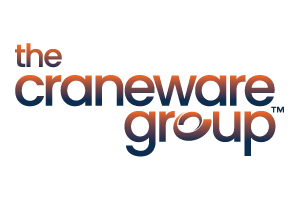SPONSORED CONTENT
With so many challenges facing health systems today — from 340B contract pharmacy restrictions to drug shortages, labor issues, and ever-rising costs — revenue integrity has become essential to financial stability.
With huge increases in drug expenditures from pre-pandemic levels, health systems must focus on maximizing efficiency, reducing medication costs, and increasing revenue. In this new reality, hospital pharmacies should think and act like a business unit, not just a cost center. Yet many hospitals unknowingly receive reimbursements that fall short of their medication costs, leading to financial strain and plenty of stress and anxiety for hospital and pharmacy administrators.
In healthcare, revenue integrity refers to the comprehensive approach organizations take to ensure accurate billing, appropriate reimbursement, and proper and efficient utilization of resources. For some hospitals, it represents a new way of doing business. If there are gaps and silos in their processes, it’s hard to achieve optimal medication revenue cycle performance. Manual and complex data-collection processes further compound things and make it difficult to identify opportunities for improvement.
Broadly speaking, there are four main strategies hospitals and pharmacy departments can employ to enhance efficiency, reduce the cost of medications, and boost revenue.
Medication Revenue Cycle Management
Hospitals should develop a targeted approach to medication revenue cycle management. By closely monitoring and analyzing medication claim reimbursement, you can identify areas for improvement, minimize negative margins, and increase overall revenue. Technology available today facilitates a proactive approach that improves the financial health of the organization and ensures that the necessary resources are available to improve patient care.
Formulary and Reimbursement Management
The hospital pharmacy formulary is a key element in managing medication costs. By regularly analyzing reimbursement amounts and comparing them to costs, hospitals can ensure that their formularies are comprised of cost-effective, high-quality medication options that still meet patients’ needs. This strategic alignment of formulary and reimbursements helps control expenses without compromising on the quality of patient care.
Monitoring Wholesale Acquisition Cost
Medication costs continue to rise exponentially, making it crucial to keep a close eye on wholesale acquisition cost (WAC). By actively monitoring WAC spending, you can identify billing compliance issues, cost-saving opportunities, and further improve margin. By doing so, you effectively manage expenses while maintaining the highest standards of patient care.
Optimizing GPO Contract Opportunities
By collaborating with group purchasing organizations (GPOs), health systems can gain valuable leverage in negotiating favorable contracts with suppliers, resulting in cost savings and enhanced revenue. These are often the easiest, and sometimes overlooked, opportunities that may not require any change in medication regimens.
Revenue integrity has become a fundamental principle in a fast-changing healthcare industry, bringing clinical, financial and operational benefits. By streamlining processes, lowering drug costs, and boosting revenue, health systems can improve their overall financial performance and focus on providing high-quality patient care.

Wyley McCoy is senior vice president of Medication and Supply Portfolio at The Craneware Group. He can be reached at WMccoy@thecranewaregroup.com.



